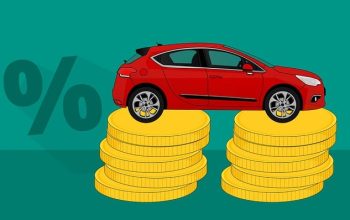The auto insurance industry is evolving with the introduction of personalized coverage plans that tailor policies to individual driver behaviors and preferences, leveraging technology like mobile apps and in-vehicle devices to monitor usage and adjust premiums accordingly. Usage-Based Insurance (UBI) has become a popular option for drivers to potentially save on insurance by demonstrating safe driving habits, while pay-per-mile plans offer cost savings for those who drive less frequently or predictable short distances. These innovative models provide a more responsive and cost-effective insurance experience, aligning coverage with actual driving patterns and behaviors, thus ensuring consumers receive appropriate insurance without overpayment. The article highlights the importance of such personalized approaches in balancing protection with affordability, encouraging drivers to regularly review their policies for optimal coverage based on their specific needs and driving habits.
As personalized coverage plans become increasingly prevalent in the auto insurance landscape, drivers are finding a novel approach to manage escalating premiums. With an average annual increase of 12%, reaching $2,278, these customizable policies offer a financial lifeline without compromising on coverage. By aligning protection with individual driving habits and needs, personalized plans represent a cost-effective solution that’s reshaping the industry. This article delves into how understanding your driving patterns can lead to tailored policies, the impact of usage-based insurance on savings, the benefits of pay-per-mile plans, and strategies to maintain comprehensive coverage at an affordable price point.
- Understanding Personalized Coverage Plans
- Evaluating Your Driving Habits for Tailored Policies
- The Role of Usage-Based Insurance in Cost Savings
- Exploring Pay-Per-Mile Plans as a Financial Strategy
- Strategies to Balance Comprehensive Protection with Affordable Premiums
Understanding Personalized Coverage Plans

Personalized coverage plans represent a significant shift in the auto insurance industry, offering drivers individualized policies that cater to their specific driving behaviors and preferences. These tailored plans take into account factors such as driving frequency, vehicle usage, and even the time of day when you’re on the road, which can significantly influence your premiums. As drivers become more aware of how personalized plans can lead to savings, they are increasingly exploring options beyond one-size-fits-all policies. For instance, usage-based insurance (UBI) tracks and analyzes your driving habits through a mobile app or in-vehicle device, rewarding safe and economical driving with lower rates. Similarly, pay-per-mile plans charge based on actual mileage, ideal for those who drive infrequently or have a predictable low mileage. By leveraging these innovative models, drivers can enjoy a more personalized experience with their auto insurance, one that aligns with their unique needs and helps manage the rising cost of coverage without compromising on essential protections.
Evaluating Your Driving Habits for Tailored Policies

In an era where personalization is becoming increasingly common across various sectors, the auto insurance industry has also embraced this trend to offer more tailored coverage plans. Evaluating your driving habits is a crucial step in determining the right policy for your needs. Insurance providers now leverage data from usage-based insurance (UBI) programs to understand how you use your vehicle. This data includes factors such as mileage, driving patterns, and even the times of day you are most active on the road. By analyzing this information, insurers can offer rates that accurately reflect your personal risk profile, potentially leading to lower premiums for safer drivers. For those who drive less frequently or have a history of safe driving, pay-per-mile plans can be an attractive option, providing coverage at a cost directly proportional to the miles driven, thus offering a flexible and cost-effective solution for infrequent drivers.
As you consider your driving habits, it’s important to assess not only how much you drive but also when and where. Peak traffic hours and congested areas typically come with higher risks, which can influence insurance costs. By opting into programs that track these behaviors, you can demonstrate to insurers a pattern of safe driving during high-risk periods, potentially qualifying for discounts or reduced rates. Personalized coverage plans not only help in managing the rising cost of auto insurance but also ensure that you are not overpaying for unnecessary coverage. It’s an opportunity to align your policy with your actual usage and driving behavior, ensuring comprehensive protection without the excess expense.
The Role of Usage-Based Insurance in Cost Savings

Usage-based insurance (UBI) represents a paradigm shift in how drivers can optimize their auto insurance premiums. By leveraging telemetrics, insurance companies can offer rates that reflect an individual’s actual driving behavior rather than relying on broad demographic data. This means that safe drivers who consistently adhere to traffic rules and maintain a gentle touch on the wheel can see significant savings on their insurance bills. For instance, a driver who predominantly covers short distances or only uses their vehicle on weekends might benefit from pay-per-mile plans, which charge based on actual mileage rather than a fixed annual rate. This approach not only aligns with the varied lifestyles of drivers but also promotes safe driving habits. As a result, UBI is not just a cost-saving measure but also encourages responsible driving, potentially leading to fewer accidents and lower insurance costs industry-wide. With the average American driver covering thousands of miles annually, the potential for personalized savings through UBI is substantial, making it an increasingly attractive option for those looking to manage their auto insurance expenses effectively.
Exploring Pay-Per-Mile Plans as a Financial Strategy

In recent years, pay-per-mile plans have emerged as a financially savvy alternative for drivers seeking to optimize their auto insurance expenses. These innovative plans charge drivers based on the miles they actually drive, rather than a fixed premium. This approach can yield significant savings for those who drive infrequently or have a consistent routine that allows for predictable mileage. For instance, if an individual primarily uses their vehicle for commuting to work and back, a pay-per-mile plan could potentially reduce their annual insurance costs by aligning the coverage with their actual driving patterns. The financial strategy behind this model is rooted in the principle of fairness; drivers who use their cars less contribute less to their insurance premiums. This not only encourages safer driving habits but also provides flexibility for consumers whose driving needs change over time. As a result, pay-per-mile plans can be particularly advantageous for low-mileage drivers or those adapting to altered commuting patterns due to remote work trends.
To implement such a plan, drivers typically use a mobile app or device that tracks and reports their mileage accurately. The data collected from this monitoring is then used to calculate the monthly fee for insurance coverage. This real-time usage tracking ensures that drivers are only billed for the miles they’ve driven, offering a transparent and cost-effective solution. Moreover, as these plans become more prevalent, insurers may enhance their offerings by integrating additional customizable features. For example, some providers might incorporate accident forgiveness or roadside assistance services at an added cost, allowing drivers to tailor their policies even further. The potential for personalized coverage extends beyond mileage, with the possibility of future plans factoring in other individual factors such as driving behavior, vehicle type, and location. Thus, pay-per-mile plans represent a financial strategy that not only adapts to the driver’s lifestyle but also has the capacity to evolve with emerging technologies and changing consumer needs.
Strategies to Balance Comprehensive Protection with Affordable Premiums

In an era where auto insurance premiums are on the rise, motorists are increasingly seeking ways to balance comprehensive protection with more affordable premiums. A prudent approach is to tailor your insurance coverage to match your specific driving patterns and needs. This can be achieved through personalized coverage plans that take into account factors such as mileage, driving habits, and vehicle usage. For instance, if you have a reliable car and use it infrequently, a pay-per-mile plan might significantly reduce your costs while still providing the necessary protection. Similarly, usage-based insurance (UBI) tracks your driving behaviors in real-time, rewarding safe and responsible driving with lower rates. By leveraging data collected from telematics devices or smartphone apps, insurers can offer premium adjustments that reflect your actual driving risk, rather than a one-size-fits-all rate. This not only promotes safer driving but also ensures that you are paying a fair price for your coverage. To further optimize your insurance spend, consider reviewing your policy annually to account for changes in your driving habits or vehicle type, as well as shopping around to compare rates and coverage options from different insurers. By combining these strategies with a clear understanding of your coverage needs, you can navigate the auto insurance landscape effectively, securing a plan that offers both peace of mind and financial prudence.
In an era where auto insurance premiums are on the rise, personalized coverage plans emerge as a prudent solution for drivers seeking both cost efficiency and tailored protection. By understanding your driving habits and leveraging options like usage-based insurance and pay-per-mile plans, you can navigate the changing landscape of auto insurance with confidence. These customizable strategies not only align with individual needs but also offer a path to balance comprehensive coverage with manageable premiums. As such, embracing personalized plans is key to securing your financial well-being on the road.



